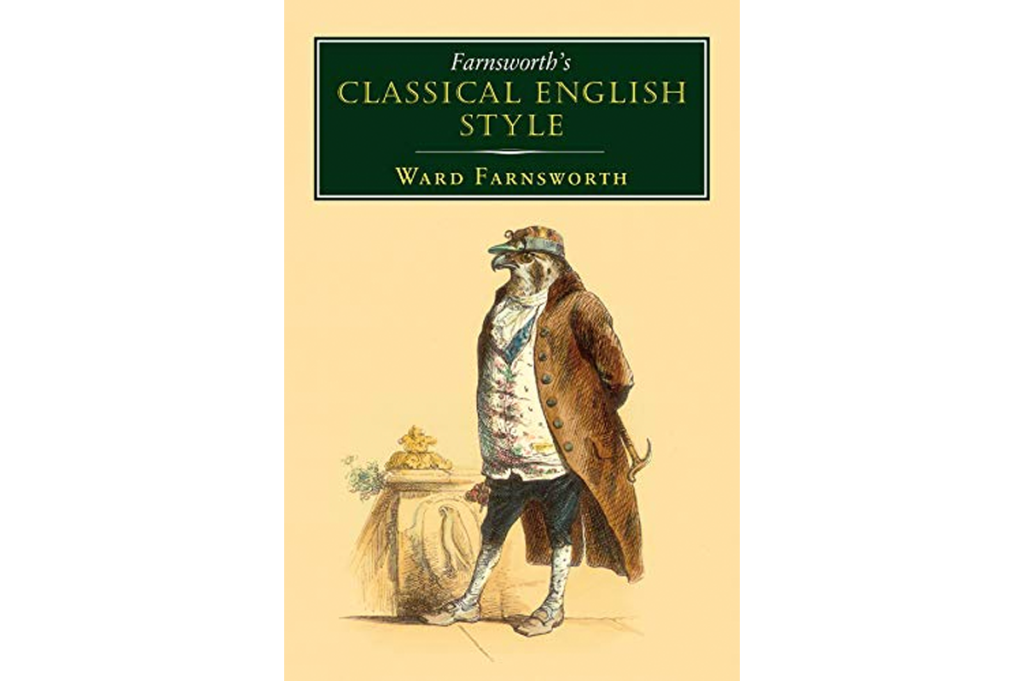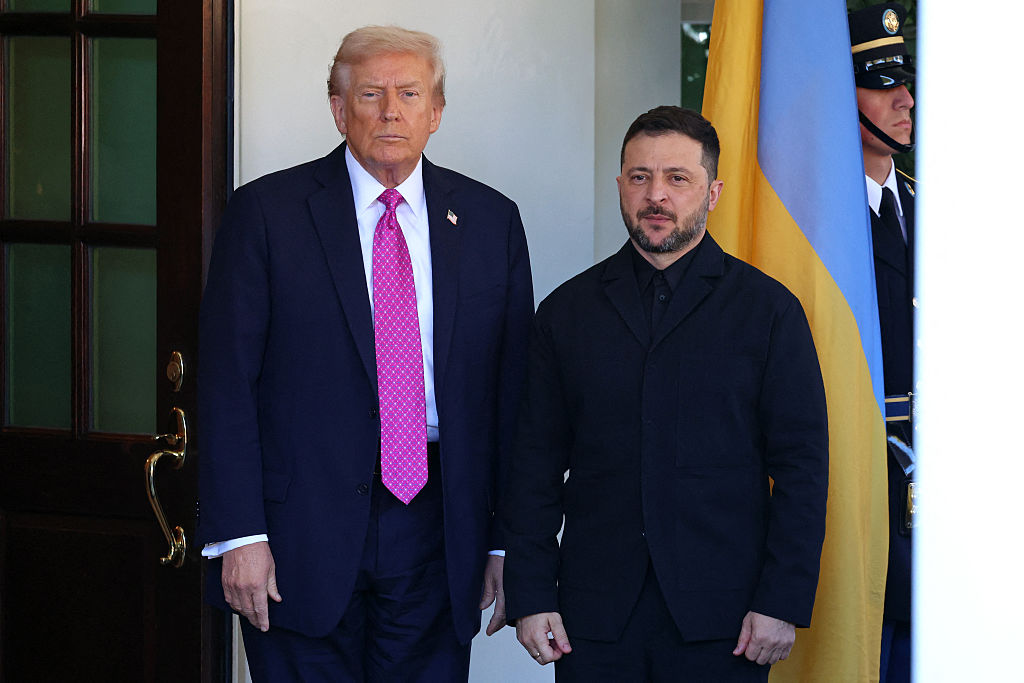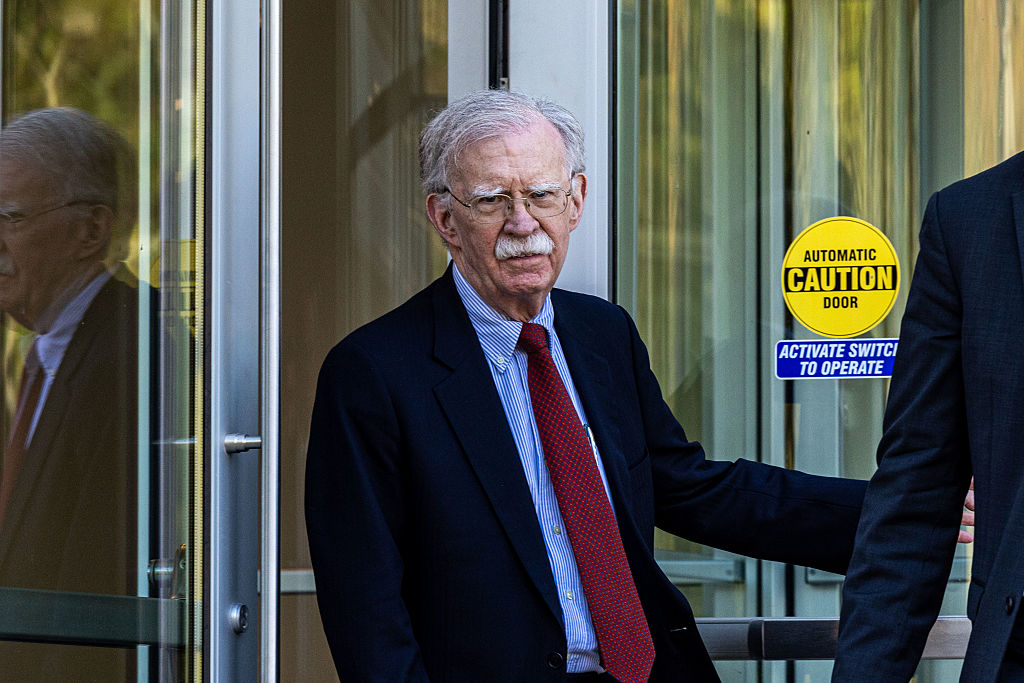Ward Farnsworth’s writing guides
I am a big fan of Ward Farnsworth’s guides to writing. He has published three of them: Ward Farnsworth’s Guide to Classical English Metaphor, Ward Farnsworth’s Guide to Classical English Rhetoric, and Ward Farnsworth’s Guide to Classical English Style. Each is beautifully designed and printed by the publisher David R. Godine (whom I wrote about here).
In the Los Angeles Review of Books, Colin Marshall surveys Farnsworth’s guides and his two books on philosophy. In the guides to writing, Farnsworth provides hundreds of sample sentences to illustrate his points. Almost all of these are from the nineteenth century. Marshall writes:
“In Farnsworth’s view, the civilization of English letters on both sides of the Atlantic peaked in the nineteenth century. In America, that time produced Lincoln as well as Mark Twain, Herman Melville, Henry David Thoreau, and Oliver Wendell Holmes Sr. and Jr.; in Britain, it produced Churchill as well as Charles Dickens, George Bernard Shaw, Anthony Trollope, and Oscar Wilde. (To Henry James, both lands lay fair claim.) All the writers whose work Farnsworth holds up for examination are long gone, and apart from figures like Frederick Douglass, Mary Wollstonecraft, and George Eliot, all qualify for the stigmatizing label of ‘dead white men.’ Farnsworth chalks this up to his focus on ‘an intersection of period and genre that was not equally open to all. I wish the world had been otherwise.’ But he must also know that virtuosity in language is no more egalitarian than virtue anywhere else.
“Many barriers to public speaking and writing have come down since the nineteenth century. Whatever the desirable consequences, among the undesirable ones is an over-standardization of the teaching process to accommodate the widest possible range of students. Hence the proliferation of rules even blunter than Orwell’s, and more intensely fixated on the direct, often repeated conveyance of a single, unambiguous message. Those posted a few years ago by a popular Twitter account branded as ‘The Writing Guy’ include ‘Use simple words,’ ‘Use short sentences,’ and ‘Get to the point.’ After enough of this sort of thing, as Farnsworth puts it, “[m]any who care about writing have been raised to value clarity and don’t know how to notice anything else.” They do feel the presence of genuine rhetorical power in speech and writing; ‘[t]hey just aren’t conscious of it and have no tools for explaining its presence or absence.’
“Perhaps rules that insist on keeping sentences short, cutting ‘unnecessary’ words, and sticking to the active voice have caught on precisely because of their teachability; perhaps the kind of style on display in Farnsworth’s best that has been written and said is not, strictly speaking, teachable at all. To reach great heights, one follows not instructions, but intuition and imagination. And as Farnsworth writes in Classical English Metaphor, ‘[t]he process of educating the intuition and imagination is best carried out with light doses of theory and long immersion in examples,’ duly included in ‘heaping quantities’ in all his works on language, none of which are simple books of quotations.”
Marshall is right that excellence in writing is best carried out with “light doses of theory and long immersion in examples.” I teach writing at the university, and students, at least from public schools, arrive on campus less and less prepared. A handful of writing classes won’t get you very far. It requires years of practice, starting with things no longer taught in many school districts — like dictation.
In other news
Adam Gopnik on the great mid-century rhymers: “Crafting great light verse and song lyrics is the white-water rafting of our language: small, regular eruptions of self-conscious wit oar against a steady stream of idiomatic speech. This is why Lorenz Hart, though dead of drink in 1943, remains the great prophet of rhyme in American lyrics and light verse.”
Dominic Green reviews Richard Cohen’s Making History: The Storytellers Who Shaped the Past, “a substantial, ambitious and consistently readable inquiry into the history of history”: “When Mr. Cohen asked Eric Hobsbawm if historical objectivity existed, Hobsbawm laughed. ‘Of course not,’ he replied. ‘But I try to obey the rules.’ Unfortunately, the rules were those of the Communist Party. Hobsbawm falsified the record to defend the indefensible. The mountain of Marxist historiography is, like the Scholasticism of the Middle Ages, a monument to faith turned tyrannical. America’s left-wing historians, Mr. Cohen writes, have consistently ‘denied the truth and distorted the import of archival evidence about Communist history,’ including by falsifying the numbers of Stalin’s victims. Given the ethical collapse of history in the age of totalitarianism, it is hard to feel optimistic about the current fashion for identity-based and ‘activist’ history. The past is too important to be left to professionals like Howard Zinn.”
Speaking of history, Sara Wheeler reviews Antony Beevor’s Russia: Revolution and Civil War: “For far too long,’ Sir Antony Beevor writes, ‘we have made the mistake of talking about wars as a single entity.’ In Russia: Revolution and Civil War he sets the record straight for the bitter years between 1917 and 1921, revealing the myriad ways in which individual actions constellated and 12 million people perished. This is not a story about winners and losers. As the war correspondent Martha Gellhorn once wrote about every conflict everywhere: ‘There is neither victory nor defeat; there is only catastrophe.’”
Scientists are turning molecules into music because converting “DNA sequences and particle vibrations into notes allows researchers to recognize unseen patterns.”
Ronald W. Dworkin makes the case for medical humanities: “Whenever I put a patient to sleep, all conversation, all culture, comes to an end. My job as an anesthesiologist is to take care of a patient’s organs, not to debate the meaning of life. That logic might well explain why most medical specialists ignore the field of medical humanities, now taught in almost half the nation’s medical schools. They think the field benefits primary care doctors, who spend a lot of time talking to patients, rather than specialists, who perform procedures and focus mostly on a few body parts. Yet this is shortsighted thinking on the part of specialists, ironically abetted by medical humanities itself.”
Misunderstanding sleep: “We are regularly told that the “ideal” night of sleep consists of eight uninterrupted hours. But this belief is wrong in so many ways. Sleep is like shoe size. One size does not fit all, and these kinds of edicts cause confusion and anxiety for many. The truth is that how long we sleep, our preferred sleep times and how many times we wake during the night vary both between people and in the same person as they get older.”
I review Lucasta Miller’s excellent Keats: A Brief Life in Nine Poems and One Epitaph: “There have been dozens of biographies of Keats and about as many critical introductions as you would care to read, but Miller’s Keats is different in a couple of useful ways.”
Photo of the day


























